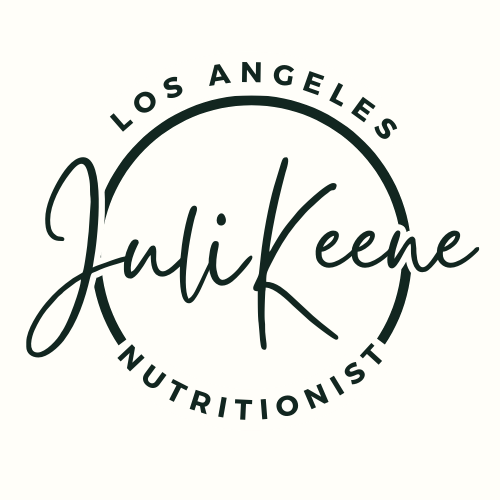Embarking on a journey of sobriety is a profound step towards reclaiming your life and well-being. As you navigate this path, it’s crucial to recognize the close connection between nutrition and your emotional state. Fueling your body with the right nutrients can play a significant role in managing your moods and promoting overall wellness. Here are six steps to help you enhance your nutrition in sobriety and nurture positive moods:
- ONE: Embrace Macrobalanced Meals with High-Quality Proteins and Nutrient-Rich Carbohydrates: Prioritize a real food, nutrient-rich diet that includes high-quality proteins and the correct carbohydrates, mainly vegetables cooked with healthy fats. To determine your daily protein amount, you can use your bodyweight in pounds, divided between 2 or 3 main meals. This approach provides the essential building blocks for mood balance and energy. For example , I weigh 125 pounds. A simple calculation of 125 grams of protein per day with that amount divided between 2 or 3 meals is 41 to 60 grams of protein per meal. Lab testing on new clients almost always shows protein as low and increasing it often provides quick relief from bad moods.
- TWO: Stay Hydrated with water and Electrolyte Drinks: Dehydration can impact your mood and energy levels. With sober people drinking a lot of sodas and coffee to avoid alcohol dehydration can be a big issue. Consider having herbal tea, plenty of water to offset if you do drink coffee, and you can try sugar-free electrolyte drinks like Ultima or LMNT to maintain proper hydration and mineral balance, supporting both your mineral balance and a good mood.
- THREE: Focus on Correct Carbohydrates for Steady Energy: Opt for nutrient-dense carbohydrates mainly from vegetables. Vegetables provide a steady release of energy, support the microbiome, and contribute to regularity due to their fiber content. Cooking vegetables with healthy fats aids in absorbing fat-soluble micronutrients, enhancing their benefits. 1 to 2 cups of deliciously cooked or raw veggies promotes satiety and a feeling of fullness without the added grains and “complex carbohydrates” in the form of the starchy things we really don’t need. After decades of working with those in the public eye (think stars as in movie, TV, rock stars and now internet or YouTube stars) I can tell you that most of them who look amazing and function as such are not eating a bunch of bread, rice, pasta or cookies. This step alone (switching out starchy grains and carbs for vegetables) will cause noticeable weight loss and muscle definition even with no other changes except increasing your quality protein amounts.
- FOUR: Include Healthy Fats for Mood Support: Prioritize healthy fats such as Omega-3s, olive oil, coconut oil, and avocado oil. Avoid unhealthy and inflammatory fake “vegetable” oils like canola, sunflower, safflower, and corn oil. Steer clear of partially hydrogenated oils like cottonseed oil, which can contribute to artery plaque. Unlike the myth we were led to believe in the 80s and beyond, fat does NOT make you fat. Sugar, starchy carbs, processed, fake foods and overeating the wrong foods while avoiding the right foods is what makes us fat. There are a few dietitians or doctors who still don’t get this but not many. Finally.
- FIVE: Limit Sugar and Processed Foods: Minimize your consumption of sugary and processed foods. These items will lead to fluctuations in blood sugar levels, impacting mood and energy levels. They also create false hunger, cause weight gain, gut issues, bloating and brain fog. When you do the other 5 steps here this one should be much easier. Staying off sugar in especially in early recovery has proven to help maintain much more stable moods and an easier detox and transition to being sober and in recovery. The less sugar you eat, the less you crave it.
- SIX: Eat Every 4 to 6 Hours for Stable Energy: Opt for eating every 4 to 6 hours instead of grazing or snacking throughout the day. This approach helps prevent reactive hypoglycemia and encourages your body to use its stored fat for sustained energy, rather than constantly storing more. We were told more false information (by food companies and diet gurus no surprise) to eat every 2 hours to lose weight. This is the opposite. If we don’t go longer than 3-4 hours we don’t even allow our bodies to use it’s own fat and to stop storing new fat. When insulin is spiked the body must deal with it. Having bigger, macrobalanced meals is the most important thing in nutrition. It’s so upsetting how many people were led astray with this one bad piece of propaganda.
Remember, making changes to your nutrition and lifestyle takes time and patience. Each step you take towards improving your diet is a step towards nurturing your emotional well-being and extending your sobriety. Consult with a healthcare professional or nutritionist for personalized guidance tailored to your individual needs.
I’m a Nutritionist with 26 years in private practice and over 35 years in recovery from alcoholism as well as an eating disorder that got worse as I stayed sober. I am in recovery from anorexia and I’ve worked with thousands of people with many in recovery from addictions, alcoholism, eating disorders and have helped many people in the public eye to optimize their nutrition, look the way they want and need to while also enjoying their diet and keeping their moods balanced
